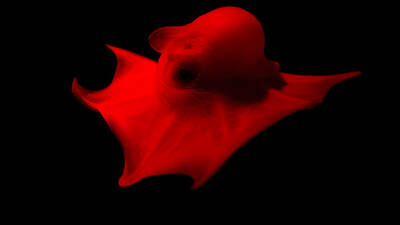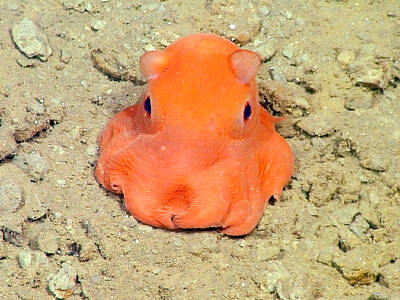Chinese practice
螳臂擋車
(tang2 bi4 dang3 che1)

Photo: Paul cooper, Taipei Times
照片:台北時報記者古德謙攝
A mantis trying to stop a chariot
螳螂是一種昆蟲,頭部成三角形,眼球突,前腳成鋸齒狀又特別發達。雖然螳螂是一種掠食者,在昆蟲世界中也相當兇惡,可是仍還是一種昆蟲,與其他的動物比起來其實沒什麼。因此,當它遇到比它還強的動物時,得小心不該低估對方。
莊子是中國戰國時代的著名思想家、哲學家,是道家學派的代表人物。螳臂擋車的概念源自於莊子所寫的莊子「人間世」,文中寫道「汝不知夫螳螂乎?怒其臂以當車轍,不知其不勝任也」一句。
「螳臂擋車」成語也可作為「螳臂擋轅」,其中螳是螳螂,擋是阻擋,所以全句的字面意思是指螳螂舉起前肢以阻擋車輪,用以譬如某人自不量力做超出能力範圍的事情,必然失敗。另外有「蚍蜉撼樹」,與螳臂擋車的用法雷同。
英文中也有類似的說法,就是“underestimate your opponent” 或 “bite off more than you can chew”。
(台北時報記者古德謙整理)
他想要一個人與惡勢力對抗,下場可能就像螳臂擋車一樣。
(He thinks he can oppose those criminals single-handedly. Next time he may find he’s bitten off more than he can chew.)
那家小公司也想和我們競爭,真是螳臂擋車。
(That tiny company thinks it can compete with us. I think they are a bit too confident for their own good.)
英文練習
underestimate someone; bite off more than you can chew
The “praying” mantis has a triangular head, bulging eyes, and two serrated, very developed forelimbs. A predator, in the insect world it is probably very intimidating. It is still an insect, however, and relatively weak compared to other animals. When it comes across an animal that is stronger than it is, it should be careful not to underestimate its opponent.
Zhuangzi was a renowned thinker and philosopher from China’s Warring States period, and is representative of the Taoist school of thought. The concept behind the Chinese idiom 螳臂擋車 originates from the “The World of Men” chapter of the Zhuangzi. In the text it says 「汝不知夫螳螂乎?怒其臂以當車轍,不知其不勝任也。」(Do you know of the praying mantis? It angrily stretches out its arms to stop a carriage, unaware that it will be unable to do so.”
The idiom can also be written 螳臂擋轅. It literally means a mantis raising its forelimbs to block the passage of an oncoming carriage, and can be used as a metaphor for someone overestimating their strength, who has perhaps bitten off more than they can chew, and is doomed to fail. There is another idiom, 蚍蜉撼樹 — literally “an ant trying to shake a tree” — with a very similar meaning.
In English, we can use the phrase “underestimate your opponent” or “bite off more than you can chew.”
(Paul Cooper, Taipei Times)
I’ve accepted too much work. I think this time I’ve bitten off more than I can chew.
(我接下太多工作,我想這次有點不自量力。)
Don’t underestimate me. I can make trouble for you.
(別低估我,小心我會找你麻煩。)

The deep waters off the coast of California are home to a bizarre creature: the flapjack octopus. This creature, known for its pancake-like appearance, spreads itself thin on the seabed as a clever survival strategy, making it difficult for predators to spot and capture it. With its unique, umbrella-shaped body formed by webbed arms, the flapjack octopus moves through the water in a graceful manner. It propels itself forward by rhythmically moving its body and contracting its webbed arms. Its pair of ear-like fins, which move independently yet with remarkable coordination, also help it explore the deep-sea environment. These

Bilingual Story is a fictionalized account. 雙語故事部分內容純屬虛構。 I stand by the Miluo River as dusk falls. The court betrayal is too much. I served Chu with loyalty. I forged alliances and fought corruption. But the whispers of jealous courtiers, the murmurs of treason, spoke louder. The king cast me out. The water looks calm. It promises peace. I step in. The river is cold against my legs. I hear shouts behind me — fishermen calling my name. I keep walking. The calls grow louder, but I do not turn around. The water rises to my chest. It pulls at me. I

In Taiwan, people can use a platform to rent a power washer for a weekend or share unused garage space for someone’s storage needs. These are examples of the sharing economy, a consumption model that has gained widespread adoption worldwide. This approach allows people to rent or share assets like cars, homes or even services, typically through online platforms. This innovative model poses a simple yet powerful question: why purchase infrequently used items when sharing is more practical? By making useful but idle resources accessible, the sharing economy turns them into sustainable opportunities. Internationally, platforms like Airbnb and Uber have popularized

Continued from yesterday(延續自昨日) https://www.taipeitimes.com/News/lang Many people may be familiar with flapjack octopuses thanks to Pearl, a charming character from the Pixar film Finding Nemo. However, her portrayal presents several scientific inaccuracies. In reality, flapjack octopuses are deep-sea creatures, which are unsuitable for the brightly lit shallow reef environment depicted in the film. Their primary defense mechanism relies on their reddish coloration, which would be ineffective in the well-lit shallows. Pearl’s famous line, “You guys made me ink,” is another fictional detail that is not consistent with the observed actions of real flapjack octopuses. As common as it is in many other octopus